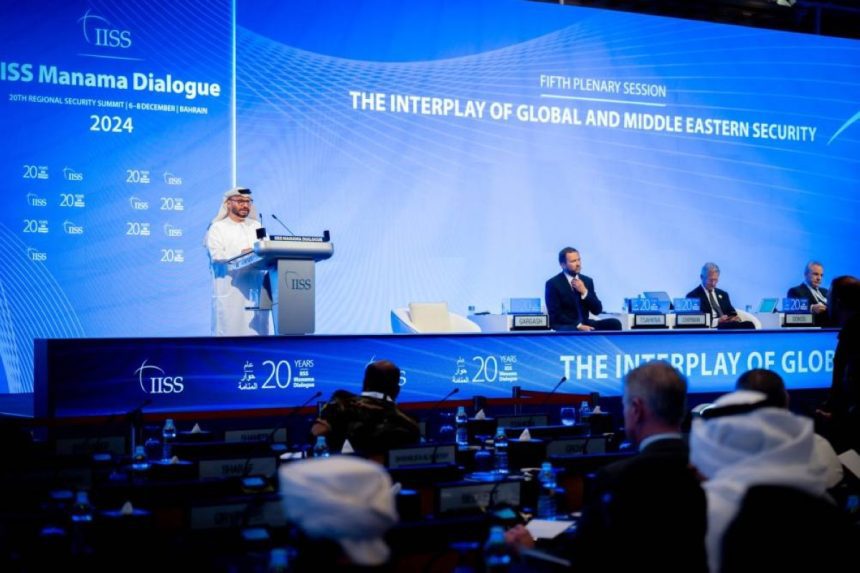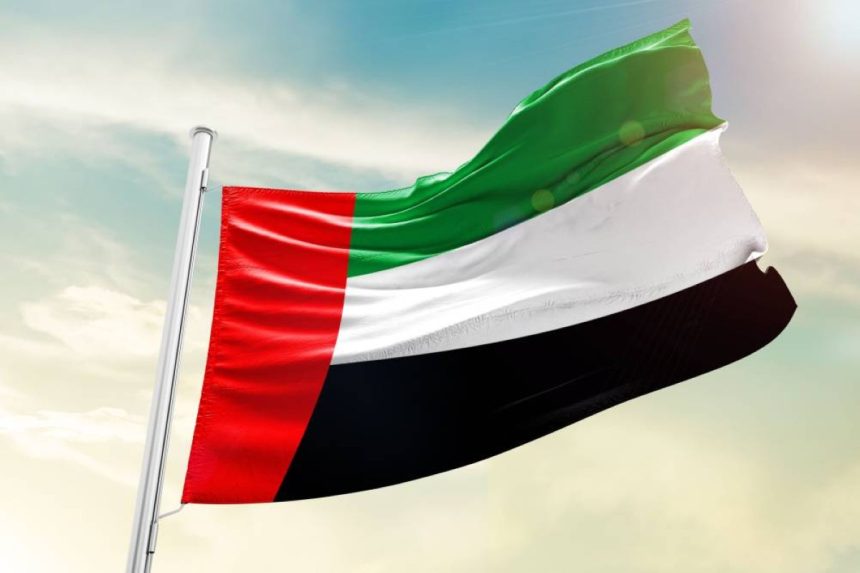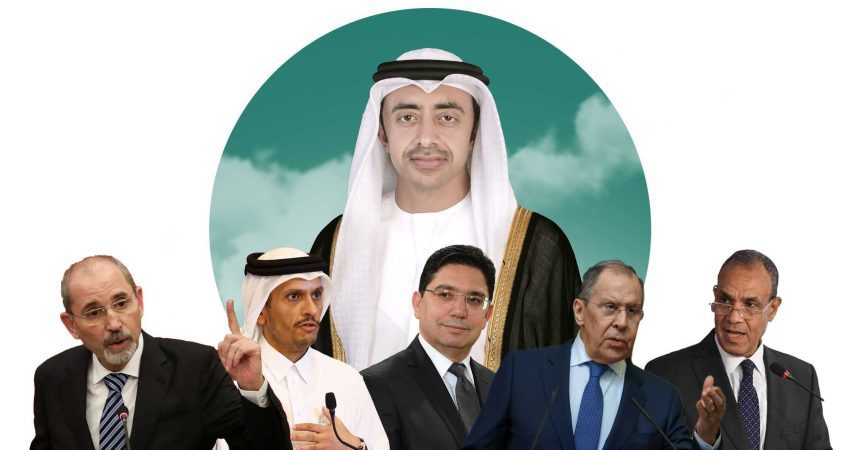HH Sheikh Abdullah bin Zayed Made a Series of Phone Discussions on Regional Developments
His Highness Sheikh Abdullah bin Zayed Al Nahyan, UAE’s Deputy Prime Minister and Minister of Foreign Affairs, made a series of phone discussions with prominent regional foreign ministers.
Those phone calls covered the regional developments, particularly the situation in Syria.
Key discussions included:
1. Russia
During a call with the Russian Foreign Minister Sergey Lavrov, Sheikh Abdullah bin Zayed emphasized the importance of bolstering regional and international efforts to support peace and stability.
Both leaders stressed activating the role of Geir Pedersen, the UN Special Envoy for Syria.
They also reaffirmed the need to implement UN Security Council Resolution 2254 to achieve a political settlement in Syria, aligned with the aspirations of the Syrian people.
2. Qatar
Sheikh Abdullah bin Zayed has also discussed the importance of Syria’s sovereignty, unity, and the security of its people with Qatari Prime Minister and Foreign Minister Sheikh Mohammed bin Abdulrahman bin Jassim Al Thani.
Both ministers exchanged views on shared regional concerns.

3. Egypt
Sheikh Abdullah bin Zayed spoke with Dr. Badr Abdel Atty, Egypt’s Minister of Foreign Affairs and Migration.
His Highness highlighted the significance of supporting Syria’s territorial integrity.
Besides ensuring the safety and well-being of the Syrian population.
Discussions also covered mutual topics of interest.
4. Jordan
In a conversation with Ayman Safadi, Jordan’s Deputy Prime Minister and Foreign Minister, Sheikh Abdullah bin Zayed reviewed international efforts to uphold Syria’s sovereignty and unity.
While addressing the aspirations of its people for security and stability.
The two leaders shared perspectives on enhancing collaborative international action.
5. Morocco
Sheikh Abdullah bin Zayed has also contacted with Moroccan Foreign Minister Nasser Bourita to explore the ways to ensure Syria’s stability and address the needs of the Syrian people.

About the Syrian Revolution 2011 – 2024
The Syrian Revolution (2011-2024) was a series of protests and uprisings against the authoritarian regime of Bashar al-Assad.
It began as part of the wider Arab Spring movement in 2011, with peaceful demonstrations demanding political reforms and greater freedom.
However, the regime’s violent crackdown on protesters led to a full-scale civil war that has resulted in a devastating humanitarian crisis.
Key Events and Turning Points:
- 2011: Protests erupted across Syria, calling for democratic reforms and the end of Assad’s rule. The regime responded with brutal force, leading to a widespread crackdown on dissent.
- 2012-2013: The conflict escalated as various armed groups, including the Free Syrian Army and extremist groups like ISIS, emerged to fight against the government.
- 2015: Russia intervened militarily on behalf of the Assad regime, significantly altering the course of the war.
- 2018: The Syrian government, backed by Russia and Iran, regained control over significant parts of the country.
- 2024: The Syrian Revolution concluded with the fall of the Assad regime and the establishment of a new government.
#Head_of_State: I congratulate the sisterly #Kingdom_of_Saudi_Arabia, its leadership and people, on the official announcement of winning the bid to host the 2034 FIFA World Cup. I am confident that the Kingdom, under the leadership of the Custodian of the Two Holy Mosques and my… pic.twitter.com/jbuuAs36t3
— UAE Voice (@uae_voiceeng) December 12, 2024
Impact and Consequences:
- Humanitarian Crisis: The conflict has caused widespread destruction, displacement, and loss of life, leading to one of the worst humanitarian crises of the 21st century.
- Regional Instability: The war in Syria has had a destabilizing effect on the Middle East, contributing to the rise of extremist groups and refugee crises.
- Geopolitical Implications: The conflict has become a proxy war involving major powers like Russia, the United States, and Iran.
- Long-term Reconstruction: The rebuilding of Syria will be a massive and complex task, requiring significant international aid and cooperation.
The Syrian Revolution remains a complex and ongoing issue with far-reaching consequences.
The UAE will support Syrian to reach their rights during the next period.
Mentioning that Sheikh Abdullah bin Zayed series of connections reflect a collective regional focus on bolstering Syria’s sovereignty, ensuring its stability, and addressing the broader humanitarian and political challenges.





